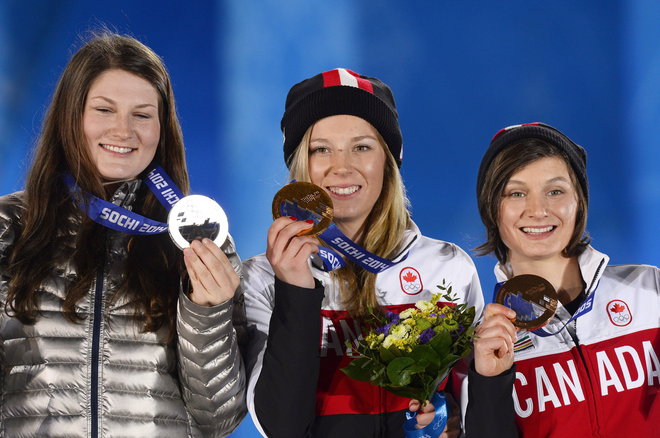Science Seen Physicist and Time One author Colin Gillespie helps you understand your world.
Fair Go at Sochi Olympics
In Aussieland, from whence I am, Fair go is slang for reasonable opportunity. In New Zealand it’s a TV show. What’s a fair go on the ice or snow or track or in the pool?
Picture this. You’re in the starting blocks at the Olympics. You’ve trained for years to make it for your one big chance. You are up against tough competition. I see them on the TV screen. Like you, each one listens for the gun, poised to get the best start that they can. The gun goes off. Any extra milliseconds you spend standing there could cost you a medal. You launch yourself into the race as close to instantaneously as you can.
But is this setup fair?
In fact, it’s not. You have a hidden handicap; it depends where you’re standing. It’s simple physics: Sound takes time to travel.
The gun goes off. The molecules of air next to the muzzle of the gun take off. They energize the molecules that they bump into. Etcetera. The molecules next to the athletes’ ears know nothing of this yet. Moments later, they won’t get the message at the same time; they will get it in succession.
The speed of sound in air depends a bit on temperature and humidity. In the Sochi Skating Center it’s about 1088 feet per second. So the nearer to the gun of skaters waiting, let’s say, 11 feet apart will hear the gunshot some 10 milliseconds sooner than the other. Just one millisecond might decide a medal.
The difference can be even greater with more widely separated swimmers or with staggered starts in track relay races. The problem is technology of timekeeping outpaced that of the starting pistol. Just check world record times for the mile run. Records go back to 1855, when Charles Westhall of the UK clocked 4:28. That’s right, no decimals attached to his seconds. In 1999 Hicham El Guerrouj was timed at 3:43.13. But how close was he to the gun?
The good news story is that starting pistols have been catching up. As of 2012, electronic starting is the Olympic standard. Sound comes from speakers equidistant from the athletes. I trust that’s what they’ve got at Sochi.
For me the moral of your starting story is: Even though those milliseconds may be tiny, timing physics can contribute to a level playing field.
Sources:
Calculation: Speed of sound in humid air; http://www.sengpielaudio.com/calculator-airpressure.htm
Wikipedia, Mile run world record progression, accessed 12 February 2014; http://en.wikipedia.org/wiki/Mile_run_world_record_progression#Professionals


No comments yet.